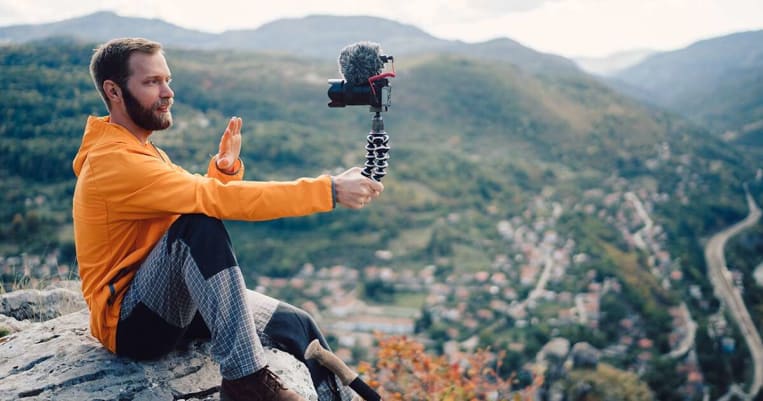
Content creators and YouTube monetization

(Getty Images)
The information contained in this article is provided for informational purposes only, and should not be construed as legal advice on any subject matter. You should not act or refrain from acting on the basis of any content included in this article without seeking legal or other professional advice.
BBB thanks Google for their sponsorship of this series.
YouTube has become home to all types of content creators, from performers on supermassive channels like PewDiePie and the Indian Bollywood channel T-Series, to mechanics sharing tips on auto maintenance and teenagers performing covers of their favorite songs. Like Facebook, Instagram, and Snapchat, YouTube is another big medium that marketers have mined to get the benefit of consumers’ relationships with their favorite content creators. And unlike the way information was found and consumed in the past (remember those massive collections of encyclopedias?), YouTube allows people to directly connect and share ideas anytime, anywhere.
How to make money on YouTube: Content creation and influence
The relationship between content creators and advertisers is focused [insert link to article 1] on how they might use their influence to market a product or service. However, there are other ways content creators can seek monetization, often through features of the platform they are working with. For example, besides working directly with marketers, content creators on YouTube can make money by enabling features embedded in the YouTube platform.
YouTube monetization: How does it work, really?
Say you want to share a video on YouTube. To upload content, you must have a Google account (Google owns the YouTube platform). You can then create a “channel” to display your content and set key words to help other users find your videos..
After you’ve uploaded your video to YouTube, you may be able to join YouTube’s Partner Program, which grants you access to certain resources and features. To be eligible for the YouTube Partner program, you must:
- Add an AdSense account to your channel (this is the software that helps gets ad targeting on your video)
- Make sure you have at least 1,000 subscribers and 4,000 public watch hours
- Make sure your channel follows YouTube’s policies and guidelines
- Send in a YouTube Partner program application through your channel’s accounts
- Wait for your application to be reviewed and accepted
Once you’re accepted into the YouTube Partner program, you’re eligible for:
- Ad revenue: Users may obtain ad revenue from online, overlay, and video ads
- Channel memberships: YouTube viewers can become members of your channel and make recurring monthly payments for special perks and offers
- Merchandise shelf: Viewers can browse and purchase merchandise featured on the pages of your videos.
- Access to YouTube premium: When subscribers to YouTube’s paid streaming service watch your content, you may get a portion of their subscription.
- Super Chat: A way to make money off comments on your page.
Be advised that just because you’re accepted into the YouTube partner program, it doesn’t mean you will immediately get these benefits. You may have to meet Google’s eligibility requirements.
What is Super Chat?
Super Chat lets viewers pay a content creator to pin a comment on a livestream. When a Content Creator is livestreaming, a viewer can click a dollar button that lets them pay the content creator to “pin” the viewer’s comments. The more a viewer pays, the longer the comment is pinned on the top of the comments section.
A note about advertising
Before ads are placed on your YouTube channel, you have to create content that meets YouTube’s advertiser-friendly content guidelines. These outline subject matter that is not suitable for displaying ads. For example, content containing strong profanity, dangerous pranks, sexual activity, violence, recreational drug or alcohol use, hateful language, or the abuse of firearms may not be eligible for running ads. Therefore, if you’re interested in having ads appear on your YouTube channel, avoid the above-mentioned topics.
Ad monetization
Once your channel is eligible for monetization, YouTube enables interest-based advertising, also known as targeted or behavioral advertising, on the channel. This allows YouTube to collect data associated with a user for the purpose of serving them with tailored advertising.
YouTube channel owners can disable interest-based advertising and instead serve “contextual” ads, which are not targeted and based on the content of the particular video. Contextual ads generally produce less revenue than interest-based ads.
New features on YouTube
In 2019, YouTube announced it will be rolling out new monetization features for content creators. These features include:
- “Super Stickers,” which will allow viewers to purchase animated stickers during livestreams
- Membership levels, which will allow content creators to set up different price points for channel memberships
YouTube is also creating additional features for content creators focused on education. The company has introduced “Learning Playlists,” a dedicated learning environment for viewers who come to YouTube to learn. Learning Playlists will provide a user experience that lets viewers focus on the lesson at hand and avoid distractions.
Opportunities for businesses and consumers to work together
YouTube, like other social media platforms, is a place where businesses, content creators, and users can thrive together to enjoy the benefits of learning, entertainment, and creativity. YouTube has created a variety of methods for monetization. If you’re considering making money on YouTube, be aware of the items discussed in this article, as well as your other legal obligations in the evolving landscape of social media.
This article is the third in a series about social media influencers. All articles can be found at BBB.org/Ad-Truth and were created with financial support provided by Google.
Still Need Assistance?
Contact Your Local BBB
Your local Better Business Bureau can assist you with finding businesses you can trust. Start With Trust®.
Additional Resources
Let BBB help you resolve problems with a business
Research and report on scams and fraud using BBB Scam Tracker
Learn more about the value of BBB Accreditation